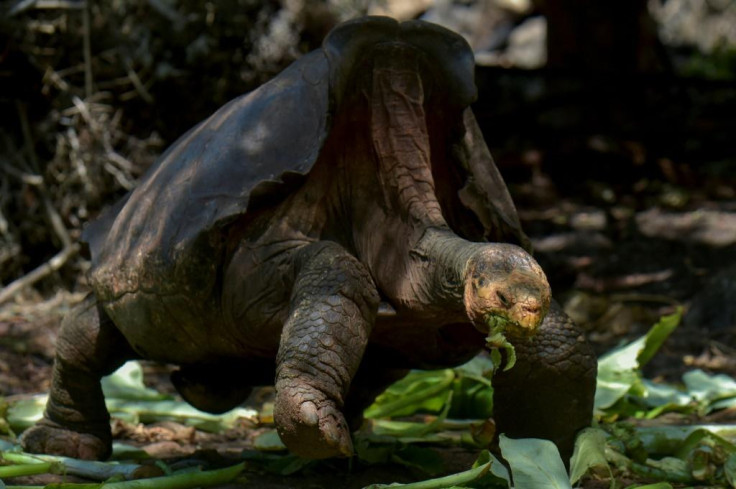Giant tortoise believed extinct found alive on Galápagos Islands
A single specimen of the Fernandina Island Galápagos giant tortoise was discovered in 1906.
A specimen of a rare Galápagos tortoise, which was thought to have gone extinct centuries ago, has been found alive by scientists from Princeton University.
The Fernandina Island Galápagos giant tortoise was last seen around 1906 and Fernanda is the first of her species to be discovered in years. When Fernanda was found in 2019, scientists were not sure if it indeed was the same species.
The researchers at Princeton used genome sequencing and compared the two specimens with the other 13 species of Galápagos giant tortoises to confirm that the two known Fernandina tortoises are members of the same species.
The other 13 species found on the island had descended from the same ancestors. Twelve of them are under threat, while one went extinct in 2012 with the death of the tortoise Lonesome George.
"Like many people, my initial suspicion was that this was not a native tortoise of Fernandina Island," said Princeton's Stephen Gaughran.
"We saw — honestly, to my surprise — that Fernanda was very similar to the one that they found on that island more than 100 years ago, and both of those were very different from all of the other islands' tortoises," he added.
Gaughran completed the analysis of the species after arriving at the university in February 2021, per SciTechDaily.
The Galapagos archipelago is famous for a wide variety of endemic species of plants and wildlife. It is a prime location for researchers to study evolution as a result of natural selection. Darwin famously spent time studying the unique animal species there. His findings eventually led him to develop his ground-breaking theory of evolution.
The invasion of the island by goats resulted in the destruction of the tortoise's natural habitat. The goats, introduced by fishermen to serve as meat on return voyages, turned the island into a dust bowl.
Even after the removal of the goats, most parts of the island remain wooded compared to the grassy place it once was, leaving the fate of the tortoises uncertain.

© Copyright IBTimes 2025. All rights reserved.






















